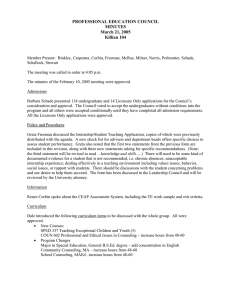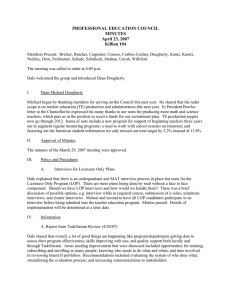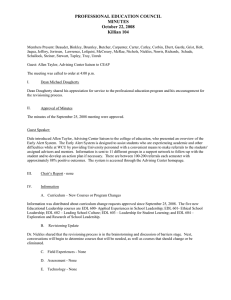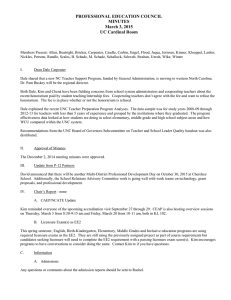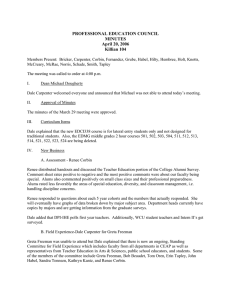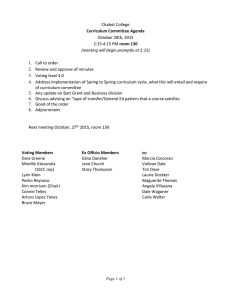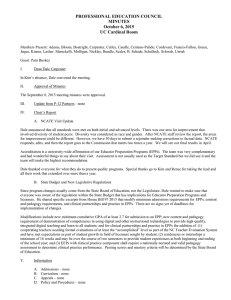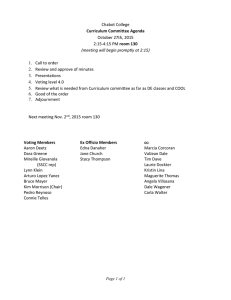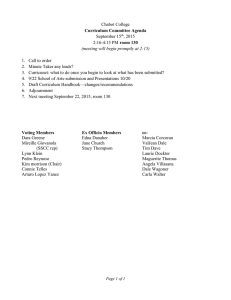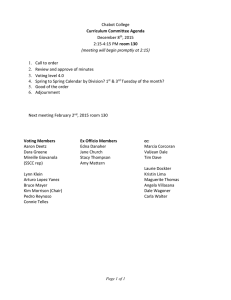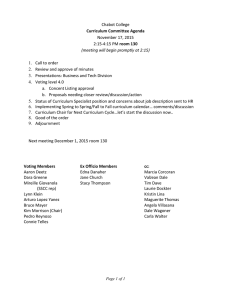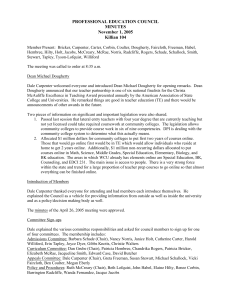PROFESSIONAL EDUCATION COUNCIL MINUTES April 26, 2005
advertisement
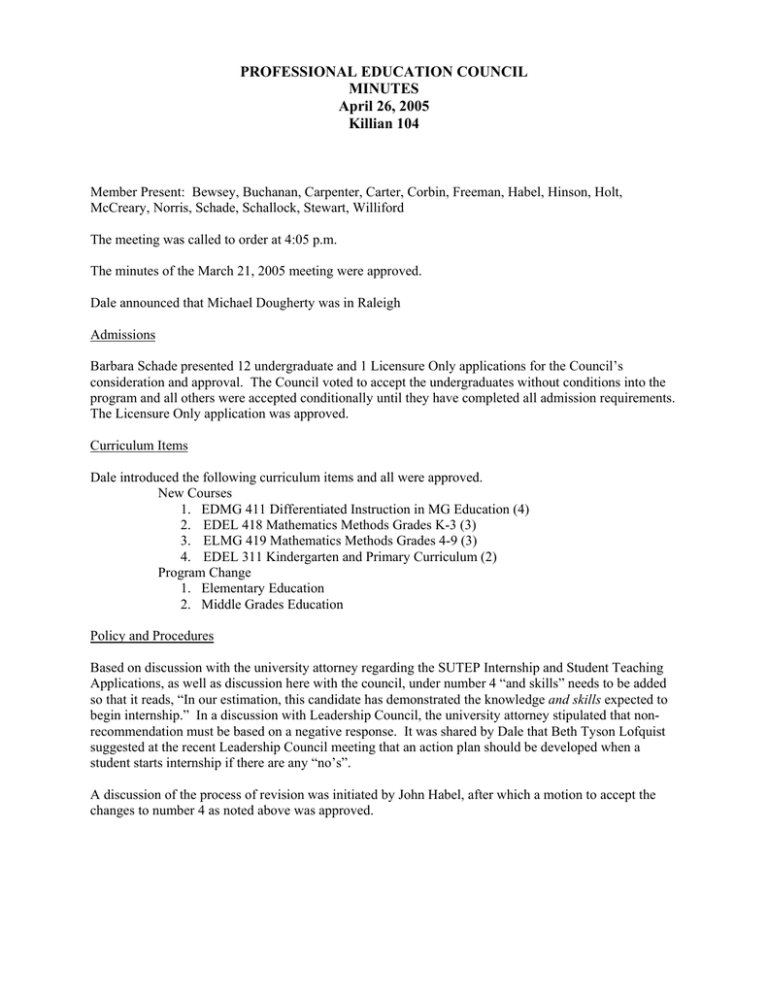
PROFESSIONAL EDUCATION COUNCIL MINUTES April 26, 2005 Killian 104 Member Present: Bewsey, Buchanan, Carpenter, Carter, Corbin, Freeman, Habel, Hinson, Holt, McCreary, Norris, Schade, Schallock, Stewart, Williford The meeting was called to order at 4:05 p.m. The minutes of the March 21, 2005 meeting were approved. Dale announced that Michael Dougherty was in Raleigh Admissions Barbara Schade presented 12 undergraduate and 1 Licensure Only applications for the Council’s consideration and approval. The Council voted to accept the undergraduates without conditions into the program and all others were accepted conditionally until they have completed all admission requirements. The Licensure Only application was approved. Curriculum Items Dale introduced the following curriculum items and all were approved. New Courses 1. EDMG 411 Differentiated Instruction in MG Education (4) 2. EDEL 418 Mathematics Methods Grades K-3 (3) 3. ELMG 419 Mathematics Methods Grades 4-9 (3) 4. EDEL 311 Kindergarten and Primary Curriculum (2) Program Change 1. Elementary Education 2. Middle Grades Education Policy and Procedures Based on discussion with the university attorney regarding the SUTEP Internship and Student Teaching Applications, as well as discussion here with the council, under number 4 “and skills” needs to be added so that it reads, “In our estimation, this candidate has demonstrated the knowledge and skills expected to begin internship.” In a discussion with Leadership Council, the university attorney stipulated that nonrecommendation must be based on a negative response. It was shared by Dale that Beth Tyson Lofquist suggested at the recent Leadership Council meeting that an action plan should be developed when a student starts internship if there are any “no’s”. A discussion of the process of revision was initiated by John Habel, after which a motion to accept the changes to number 4 as noted above was approved. PEC Minutes cont. Page 2. Information Dale continued our discussion of the third set of DPI Standards –Technology Standards. There are 6 standards every program will have to show their student candidates meet in technology standards. Standard 1: Teachers demonstrate a sound understanding of technology operations and concepts: Technology integrated in every course. i.e., technology portfolios, EDL 466 ELED course, Music 283, Math EDL 466, self appraisal technology diagnostic, products and assignments. Standard 2: Teachers plan and design effective learning environments and experiences supported by technology: ELED/MG Intern I, use of power point 1 of 10 lessons; at lab do internet lesson; technology in teaching/learning. Standard 3: Teachers implement curriculum plans that include methods and strategies for applying technology to maximize student learning: Content Specific. Standard 4: Teachers apply technology to facilitate a variety of effective assessment and evaluation strategies: Assessment in PSY 321? Look at more closely. Standard 5: Teachers use technology to enhance their productivity and professional practice: Spreadsheets/grades; seeking professional development to better use technology; how to seek out and use technology; teachers use technology to communicate and collaborate with peers, parents, and the larger community in order to nurture student learning. Standard 6: Teachers understand the social, ethical, legal, and human issues surrounding the use of technology in PK-12 schools and apply those principles in practice. Music 466 teaches ethical and legal issues of copy write; acceptable use policies and heightened use of technology ethically, i.e., permission to video tape; methods courses natural place to have some of these conversations; EDCI 231 deals with code of conduct and NEA codes; facilitate equitable access to technology resources for all students – have alternative assignments. Dale reiterated that the purpose is to be aware of standards, address them and, more importantly, show how accomplish them (the evidence) to outside sources. Ben Coulter will provide support to those who need it in incorporating technology into the classroom. Some examples include teacher work samples, diversity, technology portfolio, leadership standards, etc. The meeting was adjourned at 4:40 P.M. Respectfully submitted, Barbara L. Schade, Secretary
